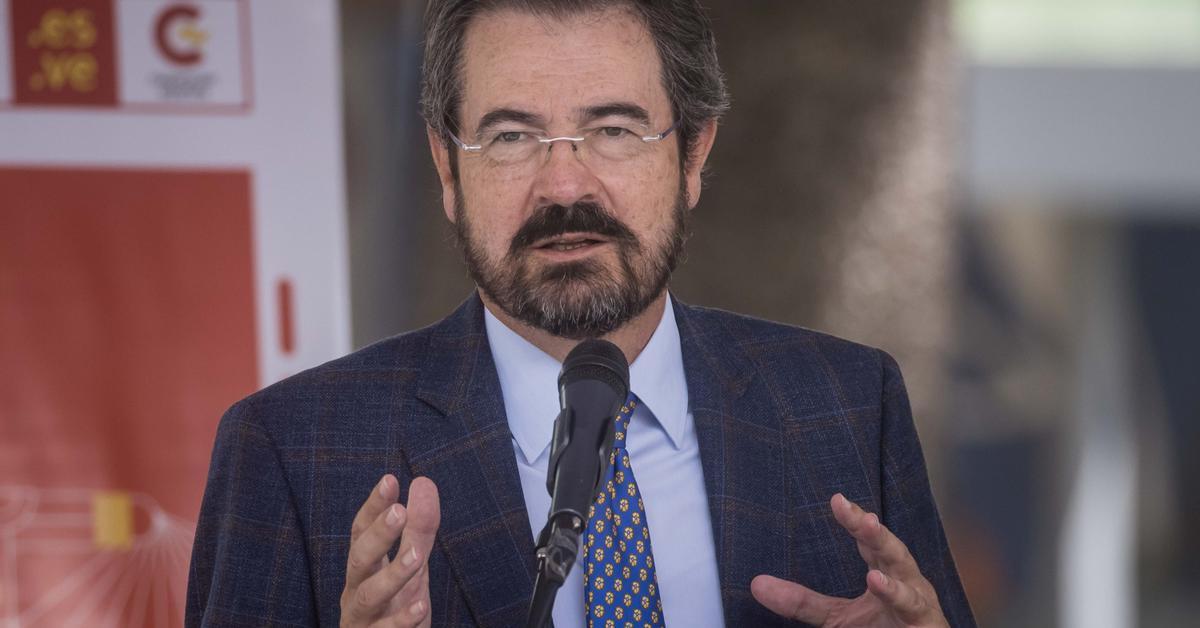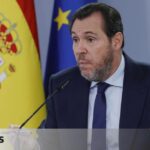
Venezuela has summoned the Spanish ambassador in Caracas, Ramón Santos, in response to what the government of Nicolás Maduro considers to be “insolent, interventionist and rude statements” by the Spanish Minister of Defense, Margarita Robles, who on Thursday called Venezuela a “dictatorship” and criticized the “persecution” and “limitation of fundamental rights” suffered by the opposition in the South American nation. Maduro’s government has also summoned its representative in Spain, Gladys Gutiérrez, for consultations.
The Minister of Foreign Affairs, José Manuel Albares, has limited himself to stating that “summoning an ambassador and calling for consultations are sovereign decisions of each State.” “We work to have the best possible relations with the people of Venezuela,” he responded in an interview on National Radio. Regarding the term “dictatorship” used by Robles, Albares has affirmed that the Ministers of Foreign Affairs are “the last person who has to come in and add a qualifier.” “Venezuela is a sister country with which Spain wants to have the best relations,” he insisted.
The ambassador, as explained by the Venezuelan Foreign Minister, Yván Gil, on his Telegram channel, must appear at the Ministry of Foreign Affairs this Friday at the request of the Chavista Executive, which considers that Robles’ statements “point to a deterioration of relations between both countries.” Regarding the ambassador in Spain, it is not clear whether the appointment is for the same date on which Santos must appear at the Foreign Ministry or on another date.
Robles: What Maduro is doing to the opposition is “unacceptable”
Following the arrival of the standard-bearer of the largest Venezuelan opposition coalition, Edmundo González Urrutia, to Spain – where he has requested asylum, considering that he was suffering political and judicial persecution in Venezuela – Robles said that what the Government of the Caribbean country is doing with “so many” anti-Chavez supporters is “unacceptable and unacceptable.”
On Wednesday, Venezuela’s parliament, controlled by Chavismo, proposed a resolution that it hopes to approve to urge Maduro to break “all diplomatic, consular, economic and commercial relations” with Spain, after Congress – without practical effect, with the votes of PP, Vox, PNV, UPN and CC – agreed to urge Pedro Sánchez to recognize González Urrutia as president-elect.
The opposition leader, who arrived in Madrid on Sunday, requested asylum due to the “persecution” he said he suffered after the presidential elections of July 28, whose official victory was awarded by the National Electoral Council to Maduro, a result later validated by the Supreme Court of Justice. The opposition insists that the winner was González Urrutia, an assertion that it based on the “83.5% of the electoral records” that it claims to have collected from witnesses and members of the table on the day of the vote, which – it said – give the victory to the anti-Chavez candidate by a wide margin. However, the government claims that the records, which were later published on a website by the opposition, are “false.”
Only Argentina, led by the ultra-right Javier Milei; Ecuador, led by Daniel Noboa, president who indirectly decided to carry out the unprecedented assault on the Mexican embassy in Quito; and Panama, led by the conservative José Ramón Mulino, have taken the step of recognising Edmundo González Urrutia as the elected president of Venezuela. Neither the countries of the European Union, nor the large countries of Latin America, nor the United States have done so. Most countries are asking Nicolás Maduro to show the electoral records in order to recognise a winner.
Source: www.eldiario.es

